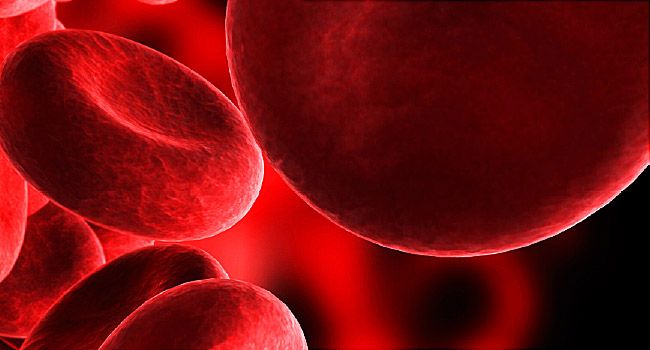It’s almost May and here in the northeast, front-of-the-pharmacy aisles are filled with myriad brands and types of sunscreen. While sunscreen is essential to lowering your risk for skin cancer, there are other simple, over-the-counter options you can incorporate into your summer skin protection routine.
Nicotinamide may help prevent certain skin cancers
Nicotinamide is a form of vitamin B3 that has been shown to reduce the number of skin cancers. In a randomized controlled trial performed in Australia (published in the New England Journal of Medicine), the risks of basal cell carcinoma and squamous cell carcinoma were significantly reduced — by 23%. Nicotinamide has protective effects against ultraviolet damage caused by sun exposure. The vitamin is safe and can be purchased over the counter. We recommended starting the vitamin (500 mg twice a day) to all our patients with a history of a basal cell carcinoma or squamous cell carcinoma, or with extensive skin damage due to sun exposure. One caveat is that the vitamin must be taken continuously, as the benefits are lost once stopped.
Nonsteroidal anti-inflammatory drugs (NSAIDs)
NSAIDs, such as ibuprofen and aspirin, may have a modest effect on skin cancer prevention. A systematic review showed that the risk of squamous cell carcinoma was reduced by 15% with non-aspirin NSAIDs, and by 18% with any NSAID. Some studies of melanoma have also shown positive results; one found a 43% reduction in melanoma with continuous aspirin for five years, while other studies have failed to show any risk reduction. NSAIDs are known to inhibit an enzyme responsible for inflammation and pain, known as COX-2, which is overexpressed in squamous cell carcinomas. A limitation to many of the studies on NSAIDs in skin cancer is that the amount of NSAID taken varied. Especially at higher doses, NSAIDs are associated with other side effects, such as ulcers, and so I do not routinely recommend that my patients take these drugs to lower skin cancer risk.
Polypodium leukotomos
Polypodium leukotomos is a tropical fern found in Central and South America that has antioxidative, immunomodulatory, and anti-inflammatory effects, and is being marketed as an oral “sunscreen.” A recent small study of 22 patients showed that the fern extract altered the effects of UVB light (the more carcinogenic form of ultraviolet light) in 17 of the 22 patients to varying degrees. However, it is important to recognize that there are limitations to this study. First, it was unable to evaluate UVA light, which also causes skin cancer. Second, it is difficult to determine the most appropriate dose from the study. The participants received two doses of 240 mg of polypodium leukotomos two hours and one hour before ultraviolet exposure, but it is not clear how best to advise patients to use it. So, you may wonder whether I recommend this to my patients. The answer is, not yet. But I do plan to try the extract myself and on my husband (who has a history of skin cancer) this summer. Just keep in mind, this does not replace sunscreen and sun-protective clothing.
Watch your alcohol intake
Although alcohol is not a classic “over-the-counter” product, it has been in the spotlight in the past year, as alcohol is estimated to be responsible for 3.5% of all cancer deaths. Two meta-analyses suggested an association between skin cancer and alcohol intake. One study found that the risk of basal cell carcinoma increased by 7% and squamous cell carcinoma by 11% for every standard beer or small glass of wine each day. Another study showed a 20% increase in melanoma in drinkers, and the risk increased with the number of drinks. However, these studies didn’t take into account other factors that could affect the results, some of which cannot be measured. One example is that ultraviolet light is the main factor that increases basal cell carcinoma and squamous cell carcinoma, and alcohol consumption has been associated with behaviors that increase one’s risk of getting a sunburn. So what is the recommendation? The American Cancer Society recommends limiting alcohol consumption to one drink per day for women and two drinks per day for men.
And you still need sunscreen!
Since we have yet to find a magic pill that completely prevents sunburns and eliminates skin cancer risk, this is my plug for good old-fashioned sunscreen. Sunscreen has been shown to reduce both melanoma and squamous cell carcinoma. Randomized prospective studies in Australia showed that individuals who used daily sunscreen had a 50% reduction in melanoma and a 40% reduction in squamous cell carcinoma, compared to individuals who used sunscreen intermittently. So when the sun and warm weather beckon, remember to apply a broad-spectrum sunscreen with at least SPF 30 prior to going out in the sun, reapply every two hours, and apply liberally: 1 teaspoon to each arm, head and neck, front torso, and back; and 2 teaspoons to each leg.
The post 4 ways to protect against skin cancer (other than sunscreen) appeared first on Harvard Health Blog.
From: Emily S. Ruiz, MD, MPH https://www.health.harvard.edu/blog/4-ways-to-protect-against-skin-cancer-other-than-sunscreen-2018042713722
